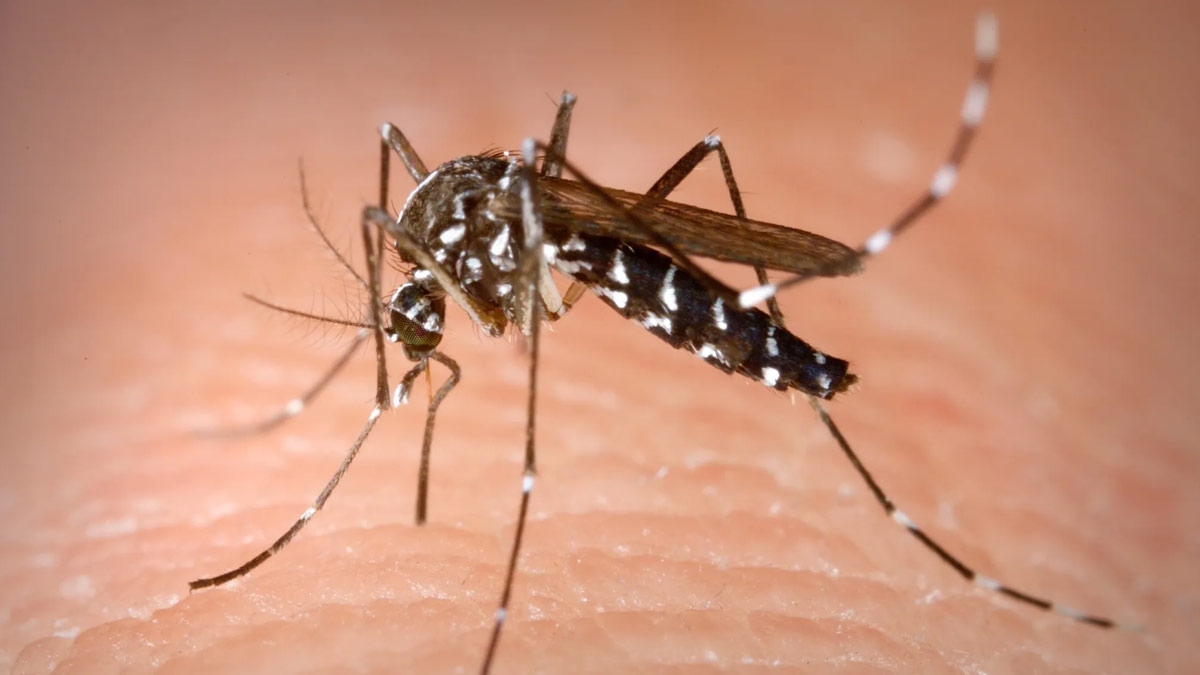
In a significant public health move, the state health department has mobilized a Rapid Response Team (RRT) to probe the recent alarming rise in chikungunya cases in Pune. The outbreak has raised concern, not just because of the sheer number of cases, but due to the presence of rare and severe symptoms seen in affected patients. With chikungunya typically causing fever and joint pain, the rare manifestations currently being reported suggest a more complicated situation that warrants urgent attention.
Table of Content:-
Rise in Unusual Chikungunya Cases After a Decade
Pune is seeing its highest number of chikungunya cases in a decade, with the most concerning aspect being the unusual and severe complications observed in many patients. So far, 225 cases have been reported this year, with 139 emerging in September alone. Health experts in the city are particularly alarmed by the severity of these cases, which have begun to resemble more life-threatening illnesses such as dengue.
Several patients have displayed serious complications like encephalitis, meningoencephalitis, myocarditis, and Guillain-Barré syndrome—conditions not commonly associated with chikungunya. These complications have affected both vulnerable groups like the elderly and children, making it a worrying trend for public health officials.

Formation of the Rapid Response Team (RRT)
In response to the rise of chikungunya cases with rare and serious manifestations, a special RRT was formed on September 18. The team is led by Dr. Radhakishan Pawar, joint director of health services. It includes top scientists and medical professionals from key institutions such as the National Institute of Virology (NIV), BJ Medical College (BJMC), and the Pune Municipal Corporation (PMC).
The RRT’s primary focus is to understand the cause of these unusual symptoms and to investigate whether the virus strain has mutated or if any new strain is circulating. Scientists from NIV, including Dr Babasaheb Tandale and Dr Anuradha Tripathi, are part of the team. Other notable members include Dr Rajesh Karyakarte, head of microbiology at BJMC, and state entomologist Dr Mahendra Jagtap.
Also Read: Dengue Resurgence: Chandigarh Reports 722 Cases, Panchkula Tops with 503
Exploring Possible Mutations
One of the key priorities of the RRT is to investigate whether the chikungunya virus has undergone mutations that could explain the severe symptoms. Dr Rajesh Karyakarte, head of microbiology at BJMC, stated that the team has all the necessary resources to conduct whole genome sequencing of the virus, which will reveal whether there has been any significant genetic change.
Samples from asymptomatic patients, patients with typical chikungunya symptoms, and those with rare manifestations will be collected from hospitals across the city. These samples will then be analyzed to determine if a mutation is responsible for the spike in severe cases. "We have the facilities for whole genome sequencing, and the samples from Sassoon Hospital will also be tested for viral sequencing," said Dr Karyakarte. However, he noted the importance of receiving samples during the period of peak viraemia to ensure accurate analysis.
Coordinated Efforts to Gather Data and Samples
The RRT’s work is not limited to just genome sequencing. Dr Premchand Kamble, assistant director of health services, emphasized that guidelines will soon be issued to private hospitals and labs for the collection of chikungunya samples. These will then be forwarded to the NIV and BJMC for detailed analysis.
Medical officers are already visiting hospitals that have reported severe cases to collect data and ensure that samples are properly sent for testing. The Pune Municipal Corporation (PMC), under the leadership of Dr Rajesh Dighe, is coordinating with private healthcare providers to streamline the process of sample collection and ensure that all medical reports are shared with the RRT for further investigation.
Also Read: Rare Respiratory Virus Spreading in the US: Key Symptoms to Watch For
Urgent Need for Further Research
With chikungunya usually presenting as a relatively mild illness, the recent surge of severe cases in Pune is a matter of grave concern. Dr Radhakishan Pawar pointed out that understanding why these rare manifestations are occurring is vital. The public health community must quickly determine if this rise in complications is linked to a mutated virus or if other factors, such as co-infections or weakened immunity, are playing a role.
The upcoming guidelines for private hospitals and labs, along with the collaborative efforts of government institutions, highlight the seriousness of the situation. Health experts agree that further research is necessary to prevent the chikungunya outbreak from worsening and to ensure the virus does not evolve into an even more dangerous public health threat.
Bottomline
The formation of the Rapid Response Team in Pune comes at a critical time as the city grapples with the resurgence of chikungunya cases that exhibit unprecedented severity. The involvement of leading experts in the investigation reflects the urgency to control the outbreak and uncover any underlying causes, such as viral mutations. The RRT’s findings will not only impact current public health efforts but will also shape future strategies to prevent and treat chikungunya, ensuring that medical professionals are better equipped to handle such outbreaks in the future.
Also watch this video
Read Next
Artemis Hospital x OnlyMyHealth Organized Walkathon and Zumba Sessions To Promote Heart Health
How we keep this article up to date:
We work with experts and keep a close eye on the latest in health and wellness. Whenever there is a new research or helpful information, we update our articles with accurate and useful advice.
Current Version